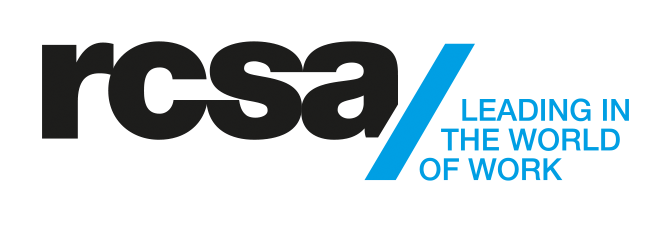Gen Y at Work: Rewarding the Global Generation
On Tuesday 11th February, Mark McCrindle had presented a piece on Managing Generations at Work, which reinforced the fact that there are strong trait variations between the generations at work and how to manage the variations.
In addition to a fantastic session on the day, Mark and his team have provided the attendees with resources found on the McCrindle blog and online library. Here is a very interesting article found on their blog.
http://blog.mccrindle.com.au/the-mccrindle-blog/gen-y-at-work-rewarding-the-global-generation
Gen Y at Work: Rewarding the Global Generation
Tuesday, July 30, 2013
Generation Y is the most educated, entertained and materially endowed generation in history, with a novel perspective on work that makes attracting, engaging and training them a challenge for employers to get right. High turnover rates among the emerging generations have posed questions around remuneration and how much is right to engage this flighty cohort.
The global outlook of Generation Y and their desire to travel, fused with their focus on lifestyle and priority focus on work-life balance give insights into how managers can best engage with them. Remuneration remains a key factor in the equation, but it is just one of many retention factors, and by no means the primary one.
Getting remuneration right: a critical issue
Even in the aftermath of the Global Financial Crisis, the attraction and retention of good staff is still a key issue and a growing one as we face growing labour demand in a recovering economy and declining labour supply with an ageing demography.
The ageing of populations and with that, workforces is a challenge across many developed countries. The median age in Japan, Germany and Italy is 44; in France and the UK it is around 40, and in Australia and the United States it is hovering around 37. In Australia we are approaching the point of “peak labour” – where there will be more full time employees retiring from the workforce than there will be younger people entering it. Indeed Australia’s population is growing by more than 300,000 per annum however the increase in the working age population is less than half of this.
Therefore filling skills shortages, ensuring talent recruitment is taking place, dealing with leadership succession, and developing young staff are all essential functions for managers wishing to “future proof” their businesses.
Adding to this strain of attracting employees are the retention challenges faced by many employers, with Generation Y leading the revolution of job churning and career changing. In Australia, our annual turnover rate of 15 per cent per annum means that the medium length of time people stay in their roles is three years and four months. If this trend continues throughout the worklife of Generation Y, they will have 17 different employers and five separate careers during their lifetime (that’s allowing for Gen Y workers entering the workforce at 19-20 and finishing work at 79-80 years of age). In this climate, it’s not only the recruitment and retention that is important, but also re-recruitment. Keeping in contact with departing talented workers has proved very useful for many managers who have been able to re-employ members of this boomerang generation.
Attracting the new generations
Generation Y don’t seek a job as much as they seek an opportunity. They have multiple expectations of an organisation. It isn’t just the job description, but the workplace culture, the variety, fun, training, management style, and flexibility that drives them. In light of this, it is not enough to focus only on financial benefits as a tool of attraction and retention.
We have conducted many studies of young job seekers, we have surveyed thousands of working Australians and conducted dozens of focus groups and interviews with Generation Y investigating the employment factors which attract and retain them and the results of the different studies concur: the size of the employer and or the recognition of the employer brand did not define an employer of choice but rather the job opportunity and challenge, varied role and career pathway, workplace culture, lifestyle benefits, management style, and work-life balance. These were factors often offered by small employers and non-profit organisations, not just larger corporates. Interestingly, salary alone wasn’t the main drawcard, and out of the many interviews remuneration was mentioned less than these non-monetary factors and rewards.
Moving past traditional incentives: retaining Generation Y
Generation Y has grown up in a world where everything is incentivised. Customer loyalty is bought with frequent buyer programs, points, or discounts. And accordingly, so is employee loyalty. By understanding and meeting their needs, motivating through relevant reward and recognition strategies, better retention can be achieved.
Flexibility to study, travel and achieve work-life balance is a basic expectation of new job seekers.
Flexibility to study
Generation Y is the most formally educated generation in history – a title they are set to keep long term with many predicted to return to formal study multiple times in their lifetime. Indeed, the 21st century life is rarely linear and sequential. Life stages were once clearly defined, starting with education, followed by work and perhaps after a career change or two, retirement. Today, the education phase extends well into adulthood, and throughout the work life. The multiple career paths taken by Generation Y will lead them to retrain several times, with an increasing likelihood to take their careers overseas. Flexibility to study is therefore crucial for this cohort.
Flexibility to travel
Having grown up in culturally diverse landscape, where 1 in 4 Australians were overseas-born, it is no surprise that Generation Y is globally connected. New technology and social media allows them to network with friends around the globe, while cheap travel allows them to travel overseas not just interstate.
With a focus on lifestyle rather than just wealth accrual, Generation Y is spending more time living at home, delaying some of the traditional benchmarks of adulthood such as buying their first home, marrying, or starting a family. Nearly 1 in 4 Australians (23%) aged between 20-34 continue to live in the parental home. Of these, nearly half have moved out and returned again with most (52%) lasting less than two years before returning home. For the majority of these, their decision to move back in is often financially motivated.
Flexibility and work life balance
Workers today look to have multiple needs met at work. Of course, working is about achieving task outcomes and receiving financial rewards, but for Gen Y it is also about fun, social connection, training, personal development, greater fulfilment and even environmental sustainability. A job for Gen Y is more than just delivering a fair day’s work for a fair day’s pay. They have an expectation that it will also help them achieve social, training, and lifestyle goals as well.
Gen Y employees need to feel that their jobs are equipping them for the future, that they are being invested in and valued. The increase in workplace ping pong tables, lunchrooms equipped with coffee machines and sandwich makers, and work meetings held in the local cafe highlight the recognition of staff wellbeing, team engagement and activity-based working in achieving better retention and commitment. The favour is likely to be returned as well – with the advent of technology Generation Y is likely to be found checking their work emails frequently out of hours, as well as working on the weekends as well.
It is self evident that every business, team and brand is just one generation away from extinction. Only by recruiting and engaging with the next generation of employees will we maintain an innovative outlook, a relevant workplace culture and a future proof organisation. Oh, and it will probably be a dynamic and fun place to work too.
Please visit their website for more information
http://mccrindle.com.au











